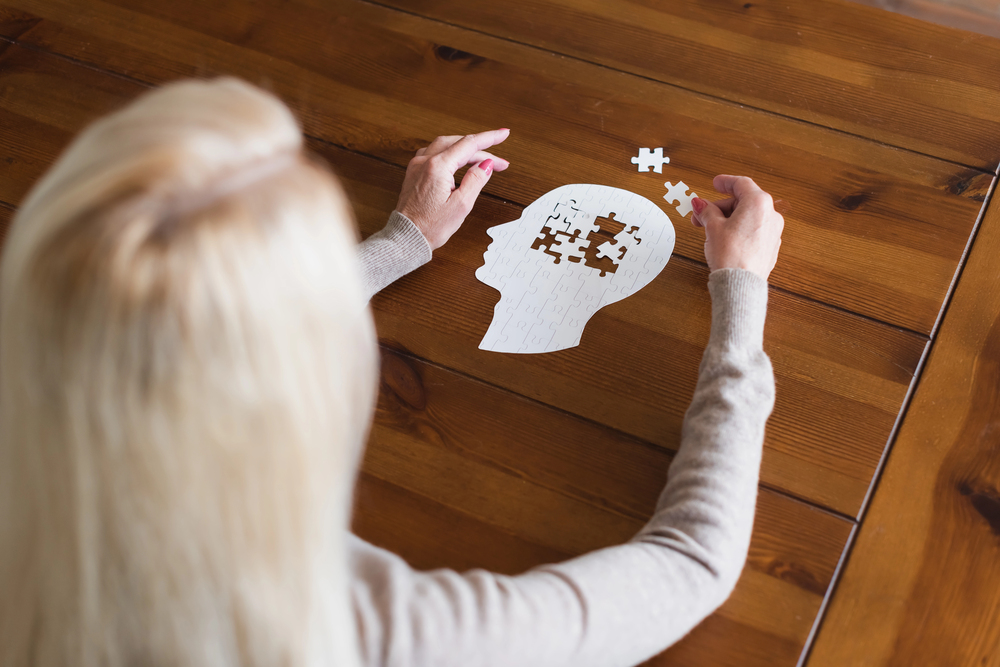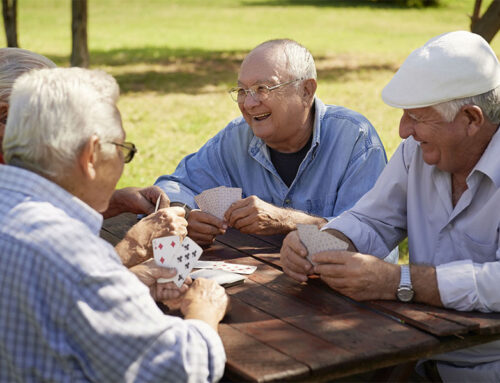At Bel Air Assisted Living, we understand the complex challenges faced by families and their loved ones battling dementia. This condition not only affects those diagnosed but also deeply impacts their families and caregivers. Recognizing the need for supportive care and meaningful engagement, we’ve tailored this blog to offer practical activities that can be done at home, while also highlighting the specialized programs we provide at our Memory Care Center. Our goal is to help you enhance the quality of life for your loved ones, ensuring they remain connected, active, and emotionally supported throughout their journey with dementia.

Five Engaging Activities to Do at Home
1. Create a Memory Box
A memory box filled with personal items can significantly benefit those with dementia. At Bel Air Assisted Living, we encourage families to compile objects that hold meaning for their loved ones, such as photographs, favorite music, or personal letters. This activity not only fosters emotional connections but also helps trigger memories and stimulate conversations about their life stories.
2. Gardening Together
We’ve observed that gardening offers therapeutic benefits for individuals with dementia, providing a calming influence and a sense of accomplishment. Whether tending to indoor plants or a small outdoor garden, this activity encourages a connection with nature. It can be easily facilitated at home.
3. Simple Cooking and Baking
Engaging your loved one in simple culinary activities can provide sensory pleasure and a feeling of normalcy. At Bel Air, we encourage our residents to participate in activities such as decorating holiday cookies and mixing individual cakes, which allow them to experience the joy of cooking and sharing meals in a safe and supportive environment.
4. Art and Craft Projects
Crafting is a wonderful way for individuals with dementia to express themselves creatively and maintain their fine motor skills. At home, simple projects like painting, knitting, or assembling puzzles can mirror the art therapy sessions we conduct at Bel Air Assisted Living, tailored to meet each resident’s abilities and interests.
5. Listening to Music and Dancing
Music evokes profound emotional responses and can unlock memories. We recommend creating a playlist of songs that were favorites during their younger years and encourage light dancing or swaying. This reflects our music activity sessions at Bel Air, where music and movement are integral parts of our care approach.

Five Activities Promoted in Memory Care Centers
1. Structured Group Exercises
At Bel Air Assisted Living, we offer regular group exercise sessions, including chair stretching and gentle movement classes, tailored to accommodate the diverse physical capabilities of our residents. These activities not only promote physical health but also cognitive function and offer valuable social interaction. They are crucial for maintaining mobility and enhancing overall well-being, fostering a sense of fun and community among participants.
2. Themed Memory Games
Memory games are a cornerstone of cognitive stimulation therapy at Bel Air. We utilize a range of games specifically designed to enhance cognitive function and memory recall, ensuring they are both engaging and appropriately challenging to meet the diverse needs of our residents. These activities also serve to bring joy and laughter, making cognitive exercises a fun part of daily life.
3. Storytelling and Reading Sessions
Bel Air Assisted Living emphasizes the importance of language and storytelling in maintaining cognitive engagement and enhancing quality of life. We host sessions where stories are read aloud, encouraging residents to share their thoughts and participate in group discussions, enhancing their social interaction and verbal skills. This promotes a deeper connection with others and keeps the mind active and engaged.
4. Sensory Stimulation Activities
Sensory stimulation is crucial, especially for those in the advanced stages of dementia. At Bel Air, we offer a range of activities designed to engage all five senses. Bright colors and diverse textures are an integral part of all our activities. Residents use tactile boards, paint, model with clay, arrange flowers, and engage in other activities, helping to evoke memories and emotions through non-verbal means. These activities are tailored to induce calmness and reduce anxiety among our residents.
5. Engaged Community Activities
At Bel Air Assisted Living, we believe in the power of community engagement to enrich the lives of our residents. Our programs include interactive events such as local school visits, services from local religious communities, performances by singing groups, themed parties, pet visits and family events, which provide diverse social interactions and foster a sense of community within our center. These activities help residents feel connected to the broader world, increasing their sense of belonging and happiness.
Exceptional Dementia Care is a Phone Call Away
Our dedicated team at Bel Air Assisted Living is committed to providing comprehensive care and meaningful engagement for individuals with dementia. We invite you to explore these activities and consider how our specialized approach at our Memory Care Center can benefit your loved one. For more detailed guidance or to schedule a visit to see our programs in action, please contact us. Together, we can ensure that your loved ones continue to experience a life marked by joy, dignity, and respect.




